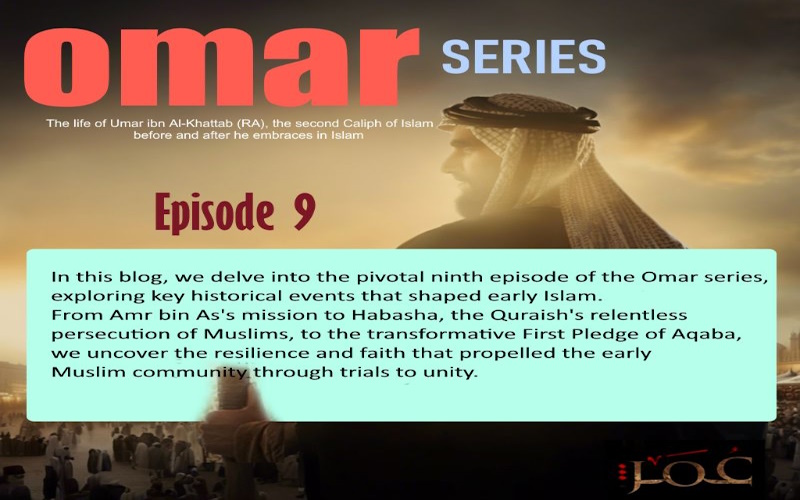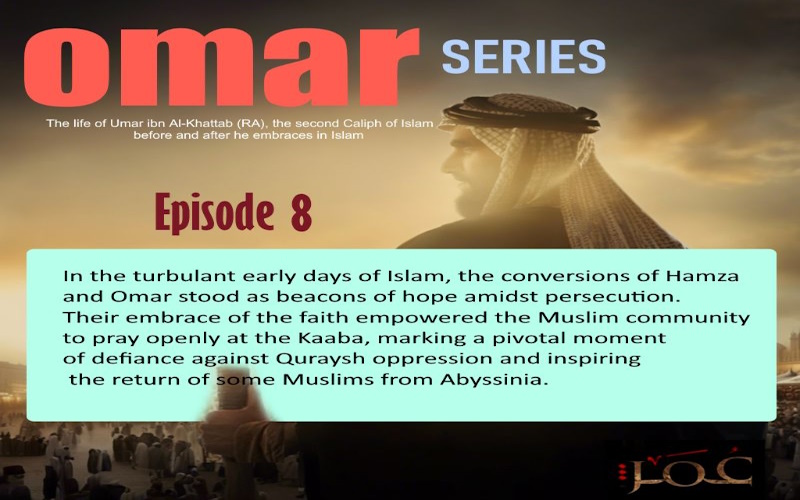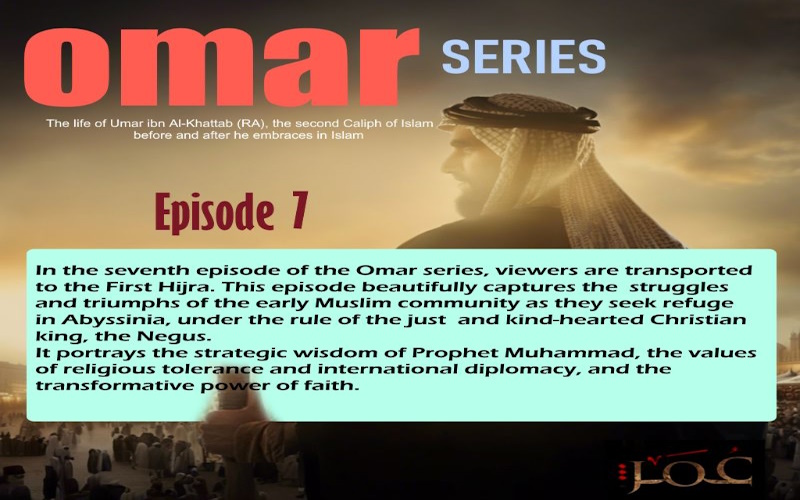The tenth episode of the Omar series not only captivates your imagination with its storytelling but also highlights a pivotal era in Islamic history by bringing to life the events that created the early Muslim community. This episode ingeniously weaves a story of tenacity, faith, and unity, shining light on Prophet Muhammad and his followers’ trials and victories and eventually establishing his authority in Medina.
The Second Aqaba Pledge: A United Front:
In the solitude of the night, 73 Muslims from Yathrab (later known as Medina) gathered at Aqaba, committing to a secret commitment that symbolised the start of a new era. The majority of them were from the two prominent tribes in Mediana , Aus and Khazraj. This assembly also witnessed the courage of two women, Nusaybah bint Ka’b of Banu Najjar and Asma bint Amr of Banu Salama, who exemplified the Muslim community’s inclusive attitude from the beginning.
Prophet Muhammad’s uncle, Abbas bin Abdul Mutallib, addressed the congregation, who, while being a non-Muslim at the time, stood with his nephew. Abbas’ emotional appeal demonstrated the depth of their determination to safeguard Muhammad as one of their own. The commitment from this band of Muslims was a statement of unwavering support, with JANNAH (heaven) as the spiritual recompense for their efforts.
Hijrah: A Strategic Migration:
The Quraysh became aware of the consequences of the commitment, prompting stronger steps to block migration, fearing the formation of a powerful Muslim stronghold in Yathrib. Muslims from Mecca slowly started immigrating to Yathrib.
After getting divine permission, Prophet Muhammad and Abu Bakr departed on the Hijrah, commencing a strategic movement that marked a new chapter in Islam.
Building a New Community:
When the Prophet arrived in Quba, the first thing he did was to construct a mosque. Finally, Muslims could pray without fear, and this became the first mosque of Islam.
From there, he entered Yathrib, which was then named Medina tun Nabi (the city of the prophet). The joyful reception, with children’s voices repeating nasheeds of welcome, reflected the Prophet’s cherished status. The camel’s stop at Ayub Ansari’s house represented divine guidance in selecting the location for what would become the Prophet’s Mosque, a crucial community and spiritual focus.
Establishing Authority and Creating a Covenant:
In Medina, the Prophet established peace and cooperation among the varied inhabitants—Muslims, Jews, and polytheists—by forging a covenant outlining reciprocal rights and responsibilities. This accord emphasised Mohammad’s leadership and the concept of collective security. However, not everyone embraced this outside control; a faction led by Abdullah bin Obay became known as the Munafiqeen, and they worked covertly against the Muslim community.
Safeguarding the Community:
Attempts to revive old tribal rivalries, as well as external challenges from the Quraysh, strained Muslims’ feelings of oneness. In response, Muhammad organised armed squads to enforce law and order and launched expeditions to confront Quraysh caravans. This strategic strategy not only secured resources but also conveyed a strong statement about Muslims’ determination and strategic ability.
Conclusion:
The tenth episode of the Omar series depicts an important turning moment in Islamic history. From the Second Pledge of Aqaba to migration challenges and the founding of a new community in Medina, these events demonstrate the early Muslim community’s endurance, faith, and solidarity. Their legacy, as illuminated by these historical landmarks, continues to inspire generations, reflecting the light of Islam over the world.
As we think on the pivotal events depicted in the Omar series, it becomes obvious that Islam and its adherents’ journey through hardships and tribulations exemplifies the enduring force of faith and the unbreakable link of a united community. This episode does more than narrate history; it also reassures us of the power that comes from unity and the unwavering spirit of endurance when faced with hardship.






